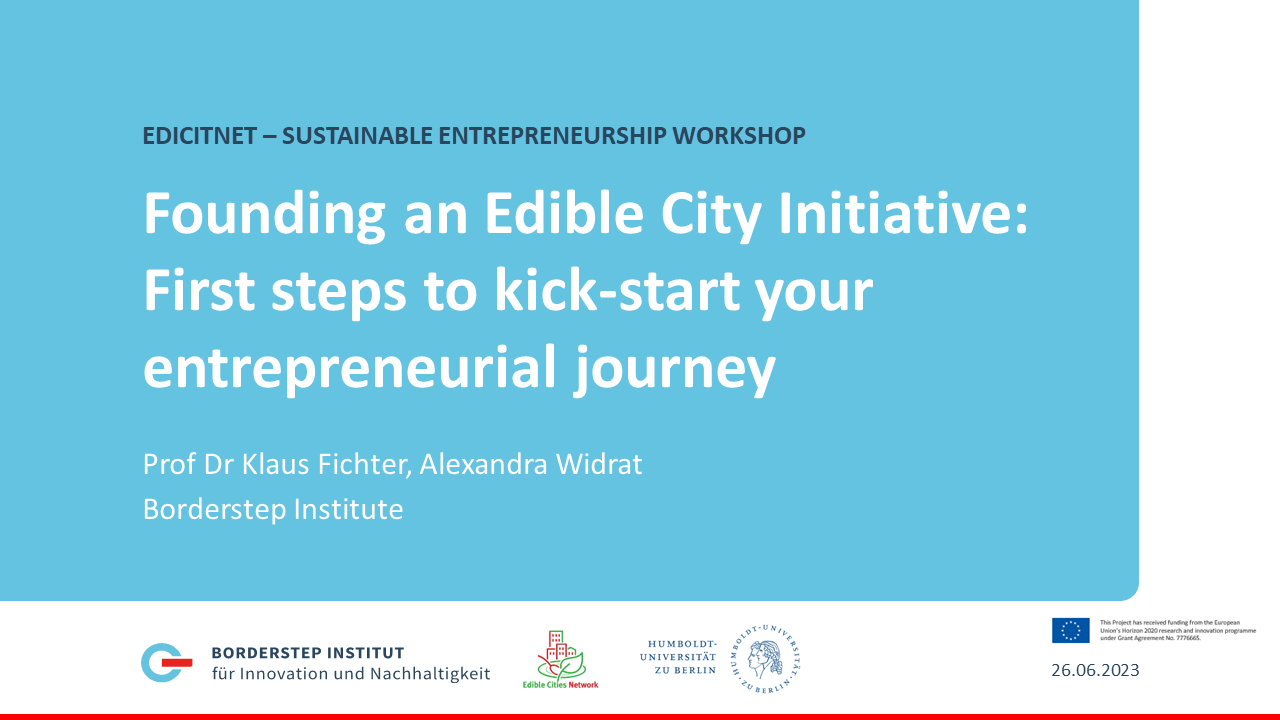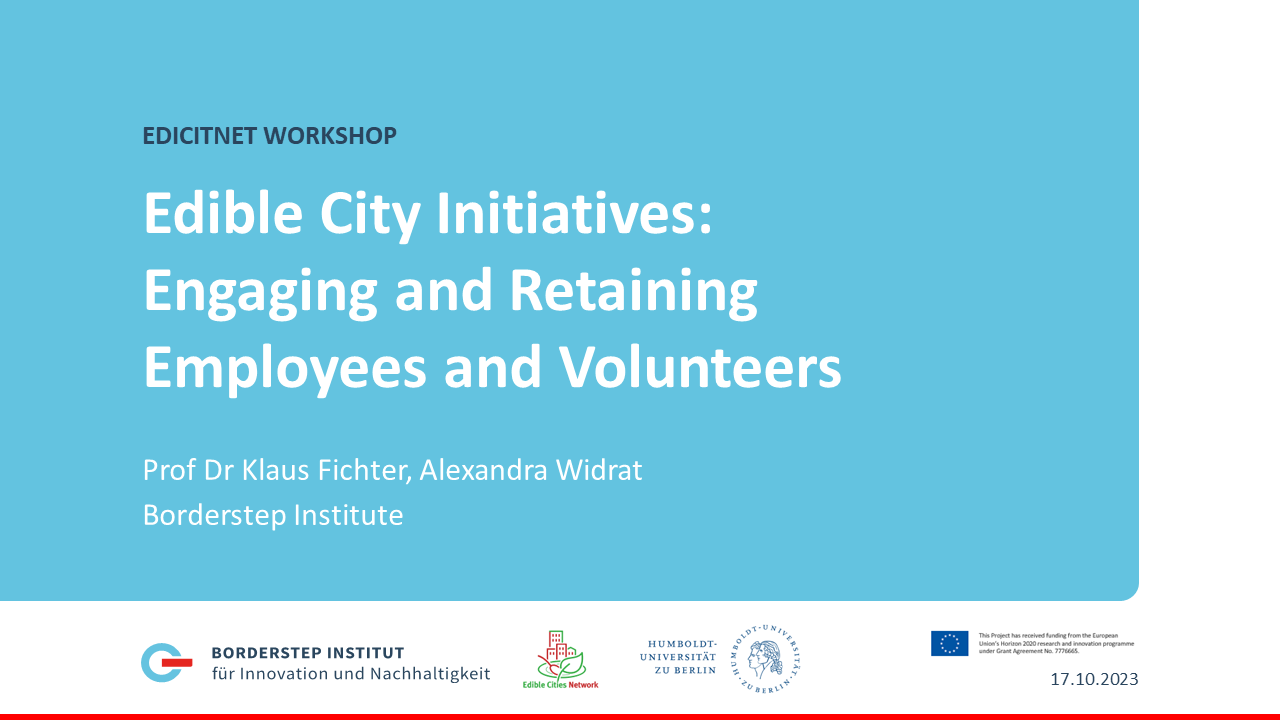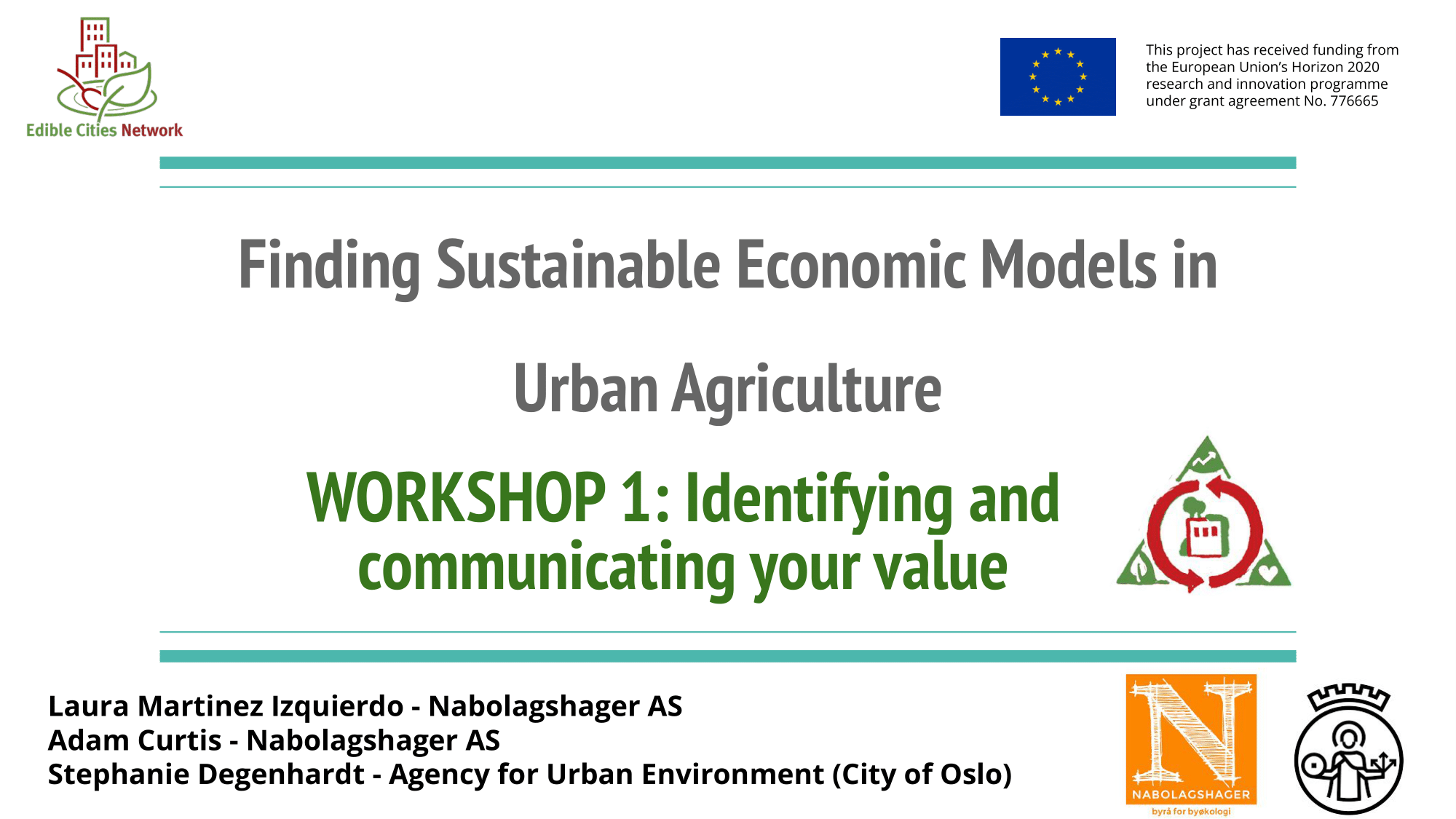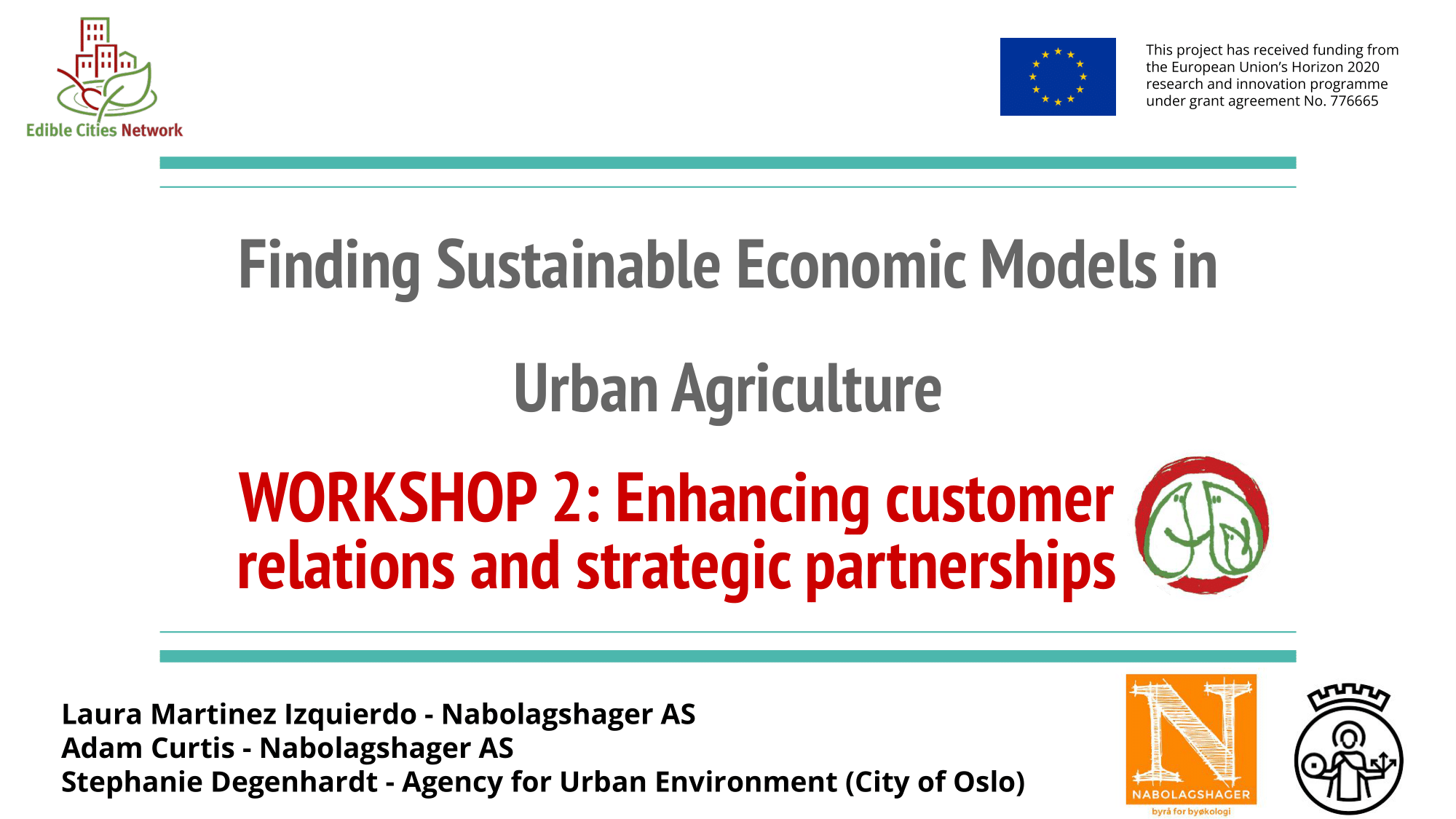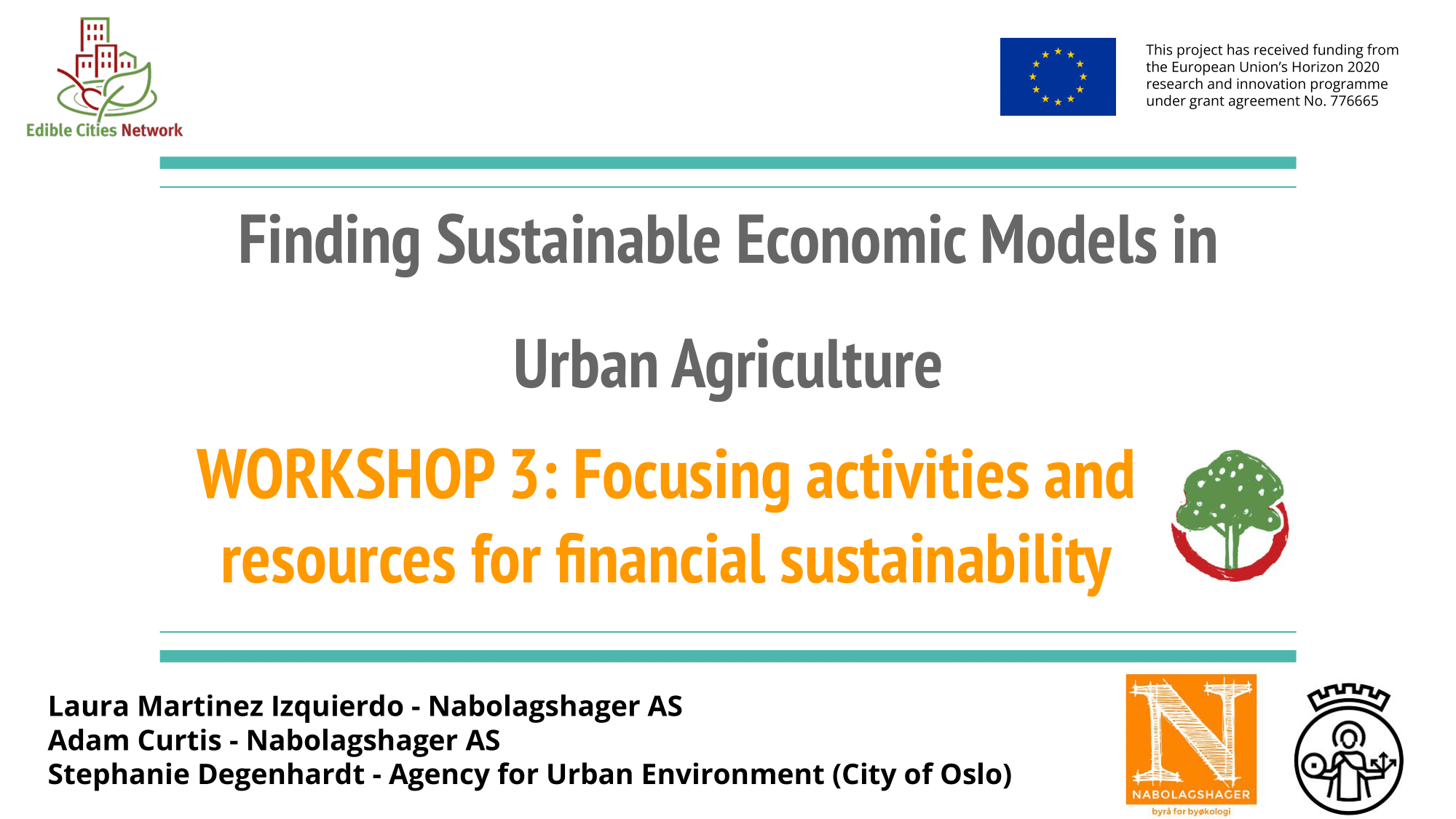Marketplace Resources
Find information to turn your edible city idea into a success!
On this page you find a variety of resources to help you build or manage your edible city business or organization.
FAQ – Do Business with Edible City Solutions
In our work with different entrepreneurs, initiatives and Edible City Solution (ECS) businesses we constantly try to find answers for pressing questions about how to design and run a successful urban food organization. We gather expert answers and condense some of the most frequently asked questions on the FAQ page.
Growing Jobs in Urban Agriculture Playbook
It is not easy to survive as an Edible City Solution (ECS) or Initiative under immense cost pressure in the urban setting. Your ECS might not be a business, but at the end of the day you need to have financial sustainability if you want to maintain your impact and change the urban food system. That is why we prepared this practical playbook! We believe that this playbook will allow you and your team to identify the necessary and sufficient conditions for economic and social success, and equip you with a tool to explore solutions and address the needs of your organisation.
Diamond Model User Guide
The Diamond Model works similar to the Business Model Canvas in supporting business model innovation and strategising. However, it is not restricted to commercial organisations. You can use it to analyse and strategise any type of organisation and initiative – neighbourhood groups, social enterprises, charities, to name a few examples. If you prioritise social and/or ecological goals over commercial success, this tool is for you. And if you want to include commercial value streams into your initiative, the tool covers them as well.
What distinguishes the Diamond Model from other business model tools is that it comprises non-commercial value logics in a systematic manner, and that it explicitly includes non-human stakeholders such as plants, water bodies, or soil organisms. This is especially relevant in the urban agriculture sector.
Media Training Guide – Intro to Journalism for Edible City Initiatives
Find out how to create a newsworthy event and get media attention for your urban food intiative with our Media Training Guide for urban food initiatives.
Founding an Edible City Initiative: First steps to kick-start your entrepreneurial journey in urban agriculture
Do you want to develop a solution for supporting sustainable food production and consumption in your city? Get a short overview of the essential first steps to take in developing your Edible City Solution with the Edible City Solution Canvas, which was presented during an EdiCitNet workshop.
Edible City Initiatives: Engaging and Retaining Employees and Volunteers
A good team creates the foundation needed to build a successful edible city initiative or business. Finding the right people, whether employees or volunteers, and engaging them are important considerations. Get a short overview of essential elements and strategies for recruiting, engaging and retaining staff, especially volunteers, which was presented during an EdiCitNet workshop.
Finding Suitable Space in Urban Areas for Your Edible City Initiative: Urban Roofs & Building-integrated Agriculture
Finding space for urban food production is an important step for developing your edible city initiative or project. This overview helps you identify and secure suitable space for your urban agriculture project, specifically suited to concepts around building-integrated agriculture such as urban roof farms.
Finding Suitable Space in Urban Areas for Your Edible City Initiative: Urban Gardens
Finding space for urban food production is an important step for developing your edible city initiative or project. This overview helps you identify and secure suitable space for your urban agriculture project, specifically suited to urban gardening concepts.
Impact Measurement and Management for Edible City Initiatives: Conceptual Basis of Impact Management
Measuring and managing impact is a fundamental part of running a sustainable urban food initiative, no matter the type of services or products you are offering. Get a short overview of impact management concepts which were presented during an EdiCitNet workshop on measuring and managing impact of edible city initiatives.
ECS Funding: Financing Options for Edible City Initiatives & Start-ups (Berlin edition)
Finding suitable funding sources for edible city solutions can feel overwhelming. To help you identify the best financial model, we have compiled an overview of financing options available for initiatives and start-ups, including respective advantages and risks. This overview was introduced to edible city organisations during an EdiCitNet workshop on financing models and strategic stakeholders for Edible City initiatives and start-ups, tailored to the Berlin context.
ECS Funding: How to – Digital Financing with CrowdDesk
CrowdDesk (now Portagon) offers a specific type of crowdfunding for organizations – so-called crowdinvesting. Private investors can support publicly advertised projects via the start-up’s financing platform. For companies, this provides simple, reliable and legally secure access to capital – without the hurdles of the classic capital market. This introduction to CrowdDesk’s offer was presented during an EdiCitNet workshop on financing models and strategic stakeholders for Edible City initiatives and start-ups.
ECS Funding: Financing Options for Edible City Initiatives & Start-ups (Koblenz/Andernach edition)
Finding suitable funding sources for edible city solutions can feel overwhelming. To help you identify the best financial model, we have compiled an overview of financing options available for initiatives and start-ups, including respective advantages and risks. This overview was introduced to edible city organisations during an EdiCitNet workshop on establishing edible city solutions in your region, tailored to the Koblenz/Andernach context.
Finding Sustainable Economic Models in Urban Agriculture: Identifying and Communicating your Value
Urban food production is essential in the transition to more sustainable cities. However, a huge obstacle for producers is convincing customers of the value of their work and products. This workshop focusued on identifying and communicating that value. Specifically, participants looked at how their work fits into the larger progress happening within the food system in Oslo, how to align own personal values and goals with those of the project, and how to communicate this value to the external world. The concept of value is the most important starting point in developing a strong case for economic sustainability, as value can be transferred into other needed resources, both financial and social.
Finding Sustainable Economic Models in Urban Agriculture: Enhancing Customer Relations and Strategic Partnerships
We know that we cannot change the food system alone. As such, the second workshop in the series “Finding Sustainable Economic Models in Urban Agriculture” focused on how to utilise an organisation’s value to better connect with customers and form partnerships. Participants received the opportunity to look at how to find new customers, better connect with customers via social media, and how to create mutually beneficial partnerships – both private and public. It is important to recognise the benefits we can all produce and receive when we work better collaboratively.
Finding Sustainable Economic Models in Urban Agriculture: Focusing Activities and Resources for Financial Sustainability
How you spend your limited time matters. In this workshop, participants looked at how to best utilise their time and resources to move towards better financial sustainability. During the workshop, participants worked through some of the challenges of determining how you should price your goods and services in relation to the time needed to produce them, how to take advantage of public funding schemes to obtain capital, and the basics of financial models and accounting for your initiative.





